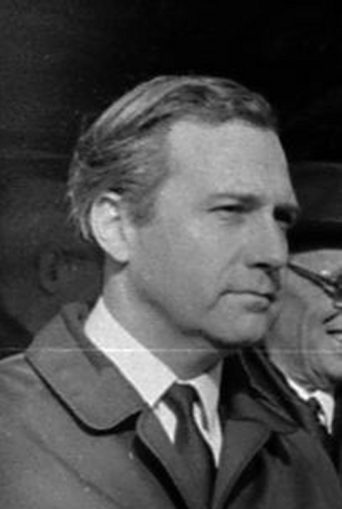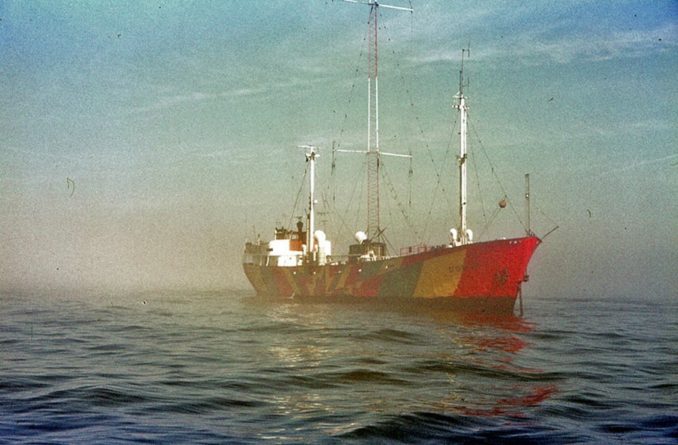Today’s brief piece recalls a disappearing act that caused somewhat of a stir back in the day that I’m sure many of you will remember. The brief career of a rapidly rising star and his ensuing swift professional demise. Of what may have been. The subject today is not Lord Lucan [1], Mr and Mrs Canoe nor the delightful Reginald Perrin [2]. Today, may I offer reminiscences of the charismatic former Labour MP, John Thomson Stonehouse (1925 – 1988).

André Cros / CC BY-SA
Brief Bio
John Stonehouse was born in Southampton in 1925 to politically activist parents. He enjoyed a trade unionist disciplined upbringing, his mother also later becoming a Labour Mayor of Southampton. He joined the Labour Party at the age of 16 before attending Taunton College, Southampton and then the London School of Economics. He married his fiancée Barbara Smith in 1948 and they had 3 children.
As an economist, he was involved with various co-operative enterprises, notably in Uganda and in London, with the London Co-operative Enterprise, being it’s president from 1962 – 64.
In Parliament
He twice unsuccessfully stood for Parliament, in 1950 (Twickenham) and 1951 (Burton-Upon-Trent). In February 1957 he was finally elected to Hugh Gaitskell’s Labour opposition, at a by-election, as the Labour Co-operative MP for Wednesbury, South Staffordshire. [This is basically all of the area you can see when looking past the unmissable IKEA near M6 Junction 9. This was also the area where this amateur scribe was born and raised].
On a 1959 fact finding trip to the troubled Southern Rhodesia, he roundly condemned the sitting regime of Sir Roy Welensky and encouraged the Southern Rhodesian ANC to stand up for their rights. He was promptly expelled.
As a junior Minister of Aviation, in Harold Wilson‘s post 1964 general election government, he was involved with the BOAC purchase of Boeing 707 aircraft, even though this purchase conflicted with his own recommendations of buying the upgraded British VC10. This caused some friction within the department and his days there were numbered.
In 1967 he rose to become Minister of State For Technology under Tony Benn. The following year, he negotiated an agreement that would provide the framework for long term development of technical co-operation between Britain and the eastern-bloc Czechoslovakia. Another promotion to the post of Postmaster General soon followed. This would turn out to be a short-lived position as the post was abolished under the Post Office Act of 1969.
In 1970 he was appointed Minister of Posts and Telecommunications. Here, Stonehouse oversaw the jamming of the offshore radio station Radio North Sea International (RNI). This station transmitted from aboard the ship Mebo II owned by Mebo Telecommunications of Switzerland. They commenced transmission from off the Dutch coast in February 1970 before anchoring just 5 miles off Clacton the following month. Jamming began on 15th April. On 13th June, five days before the forthcoming general election, they changed their name to Radio Caroline International and launched a popular campaign backing the Conservative Party who were supportive of commercial radio ventures.

Public Domain
Again, this tenure would be short lived as the 1970 general election went to Ted Heath and the Conservative Party. Surprisingly, it seemed then, this rising star was not selected to Harold Wilson’s new shadow cabinet. Mmmmm…..
Interestingly, just 2 days after the election, jamming was re-continued under the new Conservative government. The broadcaster reverted back to RNI and the Mebo II returned to Holland. It was suggested and agreed that the RNI campaign positively influenced the outcome of the election. Outside interference in an election? Never happens……
No longer in a Ministerial position and no longer in receipt of all the associated benefits, his stock now greatly reduced, he set up a total of 24 companies in the hope of filling the shortfall. By 1974, most were in trouble and he had amassed debts of £800,000 (£10 million today). He would now resort to some deceptive and creative accounting. At this time, he was also aware that he and his business interests were being investigated by the Department of Trade and Industry. With his fortunes in decline and criminal charges a distinct probability, he had already decided that he had no option but to flee the country……..
Meanwhile, his Wednesbury constituency was abolished under electoral boundary changes and he went on to stand successfully at the Labour winning 1974 general election in the nearby revised Walsall North constituency. During this brief spell in Harold Wilson’s new government, he oversaw the introduction of 1st and 2nd class postage stamps.
The Deception
On the 20th November 1974, during a business trip to Miami, John Stonehouse went missing. A pile of his clothes were found on the beach and Stonehouse was deemed missing presumed dead, either drowned while swimming or taken by a shark. No corpse was found….. The FBI even suspected he may have been the victim of a Mafia hit. The Houses of Parliament observed a minutes silence in his memory.
He was, in reality, en-route to Australia, via Hawaii, in the hope of setting up home with his secretary and mistress Sheila Buckley. He had assumed the identity of Joseph Markham, the deceased husband of one of his constituents. It was later discovered that he had been practising using this new identity in the months leading up to his disappearance. He had been transferring large sums of money between banks in order to cover his tracks. Under another false identity, that of Clive Muldoon, he deposited $21,500 in cash at the Bank Of New Zealand in Melbourne. (The real Clive Muldoon owned a newsagents shop in Darlaston, part of his old constituency). By complete coincidence, the same bank teller spotted Stonehouse (aka Muldoon) at another bank. This time suspicions were raised after it was discovered that he was using the name of Joseph Markham. The bank teller, thinking that he had stumbled upon the now infamous Lord Lucan, notified the Melbourne police. Stonehouse’s residence at the seaside resort of St Kilda was put under immediate surveillance. Having been observed paying much attention to newspaper articles relating to his own disappearance, police requested the personal details of both recent high profile absconders, Lord Lucan and Stonehouse, from British authorities. Two weeks later, on 24th December 1974, Stonehouse was arrested. The police, still believing they may have had Lord Lucan in custody, asked him to drop his trousers for identification purposes. The expected 6 inch scar on the right thigh was absent. They then realised it was indeed John Stonehouse being held in the cells. It was discovered that not only had he arrived from Hawaii using yet another alias, that of J D Norman, he had also travelled back to Europe under a false identity since his disappearance.
Stonehouse immediately applied to “Take the Chiltern Hundreds” [3], eventually deciding against that particular move. His wife Barbara, relieved he was still alive, flew out to join him only to become aware of his other life with Sheila Buckley. He was later deported back to the UK and remanded in custody at Brixton prison until August 1975 when he was released on bail. He then continued serving as an MP. The Labour party did not expel or suspend him though by various accounts he kept a low profile, cutting a ghost like figure around the House.
The Comeuppance
The Stonehouse trial began in April 1976. He conducted his own defence as he faced 21 charges including theft, fraud, forgery, conspiracy to defraud and wasting police time. It was revealed that a relief fund that he had set up to help Bangladeshi hurricane victims was missing £600K. It was also revealed that just prior to his disappearance, he had taken out life insurance to the value of £160K. The trial, during which it was revealed that he had an IQ of 140, lasted 68 days. On 6th August 1976 he was convicted and sentenced to 7 years imprisonment. Interestingly, he avoided immediate detention.
On the 17th August he resigned as a Privy Counsellor, only the third person to do so in the 20th century. His resignation from the House of Commons came on the 27th August. This left James Callaghan’s Labour government with a single seat minority. (This gave rise to the Lib-Lab pact which lasted until Margaret Thatcher’s election victory of 1979). A few days later Stonehouse joined the English National Party. This political party was founded in 1966 and campaigned for an English Parliament, the abolition of income tax and an end to local authority housing. These policies were somewhat removed from his previous Labour party ones. The party was considered centre-right but not a racist party. By 1981, the party was defunct. (Others have used the name since). The ensuing Walsall North by-election was won by the Conservative candidate. In October 1976, Stonehouse was declared bankrupt.
For her part in the deception, Sheila Buckley was charged, convicted and was awarded a 2 year suspended sentence.
Stonehouse was imprisoned at Wormwood Scrubs. Whilst in prison the House of Lords rejected his appeal against 5 of his convictions. Unsurprisingly, whist working in one of the prison workshops, he objected to music being played on the radio. He and his wife Barbara were divorced in 1978. During his time in Wormwood, and later at Blundeston Prison, he suffered 3 heart attacks and subsequently had to undergo open heart surgery. Due to his deteriorating health and allowing for his good behaviour whilst in prison, in August 1979 Stonehouse was released early from his sentence.
Later Life
After his release, Stonehouse worked voluntarily for the East London charity Community Links, joined the SDP, wrote 3 novels and made many TV and radio appearances. He was discharged from bankruptcy in 1980. The following year he finally married his lover Sheila Buckley and they had one son.
On 25th March 1988, Stonehouse collapsed on the live studio set of Central Live in Birmingham. After a night in hospital he returned home to Totton Southampton where, 3 weeks later on the 14th April, he suffered a massive heart attack and later died in hospital aged 62.
Czechoslovakian Connection
In 1969, Stonehouse was subjected to the assertion that he was a Czechoslovakian spy. He successfully defended himself against these allegations. However, it has since been revealed that in 1979, Prime Minister Margaret Thatcher agreed to cover up these allegations as Stonehouse was still in prison and there being insufficient evidence to go to trial. The official history of MI5, The Defence Of The Realm (2009) by Cambridge historian Christopher Andrew, confirmed, however, the allegations as correct. John Stonehouse had been in the employ of Czechoslovakian Socialist Republic military intelligence since 1962, feeding technical information relating to aircraft and passing on government plans. He received just £5,000 for this betrayal. [He is the only Cabinet Minister known to have been in the employ of an Eastern Bloc country].
Musings
John Stonehouse was our MP until 1974, the year of my first general election vote. The boundary change meant that his name did not appear on my ballot paper. He was well regarded in the locality, a heavy industrial working class area enjoying full employment and a thriving local economy. By coincidence, my school’s annual foreign tour of 1969 was to Czechoslovakia. No-one had been there, or anywhere behind the Iron Curtain, before and I remember parents were quite concerned for their childrens’ safety especially as a Soviet Bloc army had also recently rolled in. It passed off very well by all accounts though. I also remember a Czech lad visiting his pen-pal mate of mine for a few weeks. Small benefits maybe of an MP’s legitimate overseas contacts? The news of his fake disappearance and his assuming local peoples’ identities came as both a novelty and a shock to the locals. This Black Country town was never in the news! John Stonehouse was always held in high esteem, a very clever man, a most capable constituency MP, was tipped for and had the opportunity to serve in the highest office, but proceeded to throw it all away for reasons only he knew. In hindsight, though widely admired, I think we may have had a close call.
The industrial prosperity of the local area began to decline post 1975, my town certainly becoming a pale shadow of it’s former self. Co-incidence surely…..
Notes:
[1] – Lord Lucan disappeared from London just 3 weeks earlier on 4th November 1974, the circumstances of which were fresh in the minds at the time of Stonehouse’s arrest.
[2] – The similarities between the disappearance of John Stonehouse and that of the fictional Reginald Perrin were completely co-incidental. The book, written by David Nobbs, on which the TV series was based was completed only 5 months earlier and the TV series, starring the late Leonard Rossiter, only began it’s TV run in 1976.
[3] – The Chiltern Hundreds is an ancient administrative area of Buckinghamshire composed of 3 “Hundreds” : Stoke, Desborough and Burnham. By historic decree, sitting MPs are not officially allowed to simply resign that position. “Taking The Chiltern Hundreds” is a procedural device allowing an MP to resign from the House of Commons, the ancient office of Crown Steward and Bailiff of the three Chiltern Hundreds being the sinecure first used in the legal procedure.
Though not actually reported or heard of much today, the procedure still applies and amongst the many to have enjoyed “Taking the Chiltern Hundreds” in recent times, for a variety of reasons, include Tony Blair, David Davis, Sadiq Khan, Dennis McShane and Chris Huhne. Maybe, a few more names may be added to the list soon…..
References:
Wikipedia
The Independent 29 December 2005
The Daily Mirror 17 November 2014
BBC
© b-bob deluxov 2018
The Goodnight Vienna Audio file
Audio Player



